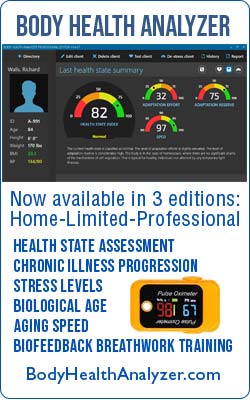Although preventable, cardiovascular disease (CVD) remains the leading cause of death worldwide, accounting for an estimated 32% of all deaths worldwide1. Risk factors of heart disease and stroke include a poor diet, lack of physical activity, smoking, high blood pressure, elevated cholesterol, and being overweight or obese, most of which are modifiable. Many people transition to a plant-based diet to lower their risk for chronic disease as plant-based diets have been repeatedly associated with improved health markers and disease prevention. However, if not done properly, a plant-based diet may do more harm than good when it comes to your health. Here are the best strategies for promoting heart health when going vegan.
Prioritize Wholesome Plant-Based Foods
Even the American Heart Association agrees that eating a plant-based diet at any age can reduce the risk for CVD2. However, being plant-based or vegan does not automatically mean that a food is good for you. Highly processed plant-based foods such as meat analogs, baked goods, frozen meals, fried foods, salty snacks, fruit juices, refined grains, and frozen desserts, are often loaded with saturated oils, salt, and sugar, which can lead to undesirable health complications. They are also often high in calories with very little nutritional value. In fact, one study suggests that some meat alternatives provide a higher content of saturated fat and sodium than their animal meat counterparts.3

Instead, focus on consuming wholesome foods that have not been processed. These include fruits, vegetables, whole grains, legumes, nuts and seeds, and should make up for the majority of your daily caloric intake. These foods are high in dietary fiber, vitamins and minerals while being naturally low in calories, saturated fat and sodium. In one study, plant-based diets consisting of mostly non-processed foods lowered CVD risk by 52%.4 Keep processed foods to a minimum and be mindful of salt consumption. Diets high in sodium are associated with increased blood pressure and a higher risk for heart failure, stroke and heart attack.5 In addition to lowering your consumption of processed foods, another way to decrease your sodium intake is to season your foods with salt-free spices, fresh herbs, garlic and onions. Lowering your consumption of frozen prepared meals, salty snacks such as potato chips, canned foods and meat alternatives can also be an effective way to lower sodium intake.
The cardio-protective benefits of wholesome plant foods lies in their ability to improve CVD markers. In fact, a whole-food, plant-based diet has been shown to improve high blood pressure, high cholesterol, impaired blood circulation, body weight, and inflammatory markers such as C-reactive protein.6 However, plant eaters may find it challenging to obtain all their nutrients from the diet as they would have to consume very high volumes of food and some plant foods lack essential vitamins and minerals. Therefore, plant-based diets should be paired with the right supplementation as supplements play an important role in supplying adequate amounts of essential nutrients, as well as supporting heart health and lowering disease risk.
Take A Heart-Healthy Supplement
Fish oil is a popular supplement that has been shown to provide some cardiovascular health benefits. This is due to the high content of unsaturated fatty acids in fish, which may reduce blood pressure, lower triglyceride levels and improve overall cholesterol level, a risk factor for heart disease.7 Fish oil is not the end-all for heart health, however, and they are not a vegan-friendly option. Other supplements have been shown to be favorable for heart health that is suitable for plant-based eaters. Many may turn to algae-based omega-3 supplements, however, the research on algae supplementation is quite limited, and many algae oil supplements have a lower recommended dose of omega-3 fatty acids than fish oil.
A better option for vegans can be found in a supplement called, Aged Garlic Extract (AGE), which has been thoroughly studied and backed by research. Garlic has been used for centuries as a natural way to enhance health. But, when it comes to the heart, AGE is the real key to unlocking garlic’s cardiovascular benefits. AGE has been shown to improve heart disease risk factors such as high cholesterol, high blood pressure and clogged arteries.8,9,10 So why not just simply eat raw garlic instead? The proprietary aging process to make AGE increases garlic’s antioxidant power, removes its strong odor, and concentrates its benefits. In short, the AGE is far more potent than raw garlic. In fact, you would have to eat up to 28 garlic cloves daily to get these same benefits you would find in a couple of AGE capsules, which is not realistic nor recommended as it can cause digestive discomfort.
Similar to many supplements out there, not all AGE supplements are vegan. When selecting supplements, vegans still need to be cautious as many supplements contain animal ingredients such as gelatin (from animal skin and bones) and beeswax to encapsulate the nutrients. So it’s important for those following a plant-based diet to read the supplement labels carefully and choose an AGE supplement that also indicates it is a vegan formula. Because it is easy to consume, odorless, and leaves no aftertaste, AGE supplements are also great for those who want an alternative to the fishy taste of fish oil and algae oil supplements.
Incorporate The Right Types Of Exercise Into Your Routine
 Eating a wholesome plant-based diet and taking a vegan aged garlic extract supplement are crucial steps towards preventing heart disease. Another important lifestyle habit to protect your heart is to exercise regularly. Being physically active is one of the most effective ways to strengthen your heart muscle and improve your muscles’ ability to pull oxygen from the blood, reducing the heart’s workload.11 Exercise is also a great tool for keeping a healthy body weight and improving cholesterol and blood pressure levels, all factors that lower the risk for CVD.11 Although there are many different types of exercise, the most effective way to incorporate movement into your daily routine is to find activities that you enjoy and to switch up types of activities regularly.
Eating a wholesome plant-based diet and taking a vegan aged garlic extract supplement are crucial steps towards preventing heart disease. Another important lifestyle habit to protect your heart is to exercise regularly. Being physically active is one of the most effective ways to strengthen your heart muscle and improve your muscles’ ability to pull oxygen from the blood, reducing the heart’s workload.11 Exercise is also a great tool for keeping a healthy body weight and improving cholesterol and blood pressure levels, all factors that lower the risk for CVD.11 Although there are many different types of exercise, the most effective way to incorporate movement into your daily routine is to find activities that you enjoy and to switch up types of activities regularly.
There are two types of exercise you should incorporate into your routine – aerobic and strength training. Aerobic exercise improves blood circulation and lowers blood pressure and heart rate. It also improves your overall conditioning and how well your heart pumps.12 Examples of aerobic activities include running, brisk walking, swimming and cycling. Resistance training is a great way to create lean muscle mass and reduce body fat, which in turn improves cholesterol levels and heart health.13 Strength training includes working out with free weights such as dumbbells, and weight machines, as well as resistance bands or body-weight exercises. Recommendations for exercise are 150 minutes per week of moderate to intense exercise14 so 30 minutes per day, five days a week, is a great habit to adopt.
Keeping A Healthy Heart For Years To Come
Cardiovascular disease is responsible for hundreds of thousands of premature and preventable deaths in the United States every year. Taking a proactive approach to disease prevention involves more than doing your regular check-ups at the doctor. There are many vegan-friendly strategies for heart health that don’t include fish oil or fish consumption. A wholesome plant-based diet, supplemented with heart-protective aged garlic extract, and regular physical activity, are effective tools to support a healthy heart and reduce your risk for cardiovascular disease. Adopting lifestyle changes, regardless of your age, is a proactive way to improve your overall health and disease prevention.
Be mindful that switching to a fully vegan diet requires planning and intention, and should be done with the guidance of a health professional. If not done properly, a plant-based diet may result in nutrient deficiencies, which can lead to future health complications. Supplementation can be an effective and inexpensive way to prevent these nutrient deficiencies. Discussing your options with a nutritionist is recommended to maximize the health benefits of living a vegan life. Read more about supplements I recommend for a healthy vegan lifestyle at my site Hungry For Plants.
References
- Cardiovascular Diseases – World Health Organization
- Eating A Plant-Based Diet At Any Age May Lower Cardiovascular Risk – American Heart Association
- Nutritional Quality of Plant-Based Meat Products Available in the UK: A Cross-Sectional Survey – Nutrients
- Plant-Centered Diet and Risk of Incident Cardiovascular Disease During Young to Middle Adulthood – Journal of the American Heart Association
- Sodium Intake and Heart Failure – International Journal of Molecular Science
- Plant-Based Diets and Cardiovascular Health – Trends In Cardiovascular Medicine
- The Effects of Fish Oil on Cardiovascular Diseases: Systematical Evaluation and Recent Advance – Frontiers in Cardiovascular Medicine
- Cholesterol-Lowering Effect of Garlic Extracts and Organosulfur Compounds: Human and Animal Studies – The Journal of Nutrition
- Aged Garlic Extract Reduces Blood Pressure In Hypertensives: A Dose-Response Trial – European Journal of Clinical Nutrition
- Aged garlic extract reduces low attenuation plaque in coronary arteries of patients with diabetes: A randomized, double-blind, placebo-controlled study – Experimental and Therapeutic Medicine
- Effects of Exercise to Improve Cardiovascular Health – Frontiers in Cardiovascular Medicine
- Exercise for Prevention and Relief of Cardiovascular Disease: Prognoses, Mechanisms, and Approaches – Oxidative Medicine and Cellular Longevity
- Cardiovascular Effects and Benefits of Exercise – Frontiers in Cardiovascular Medicine
- Physical Activity Guidelines – American College of Sports Medicine











